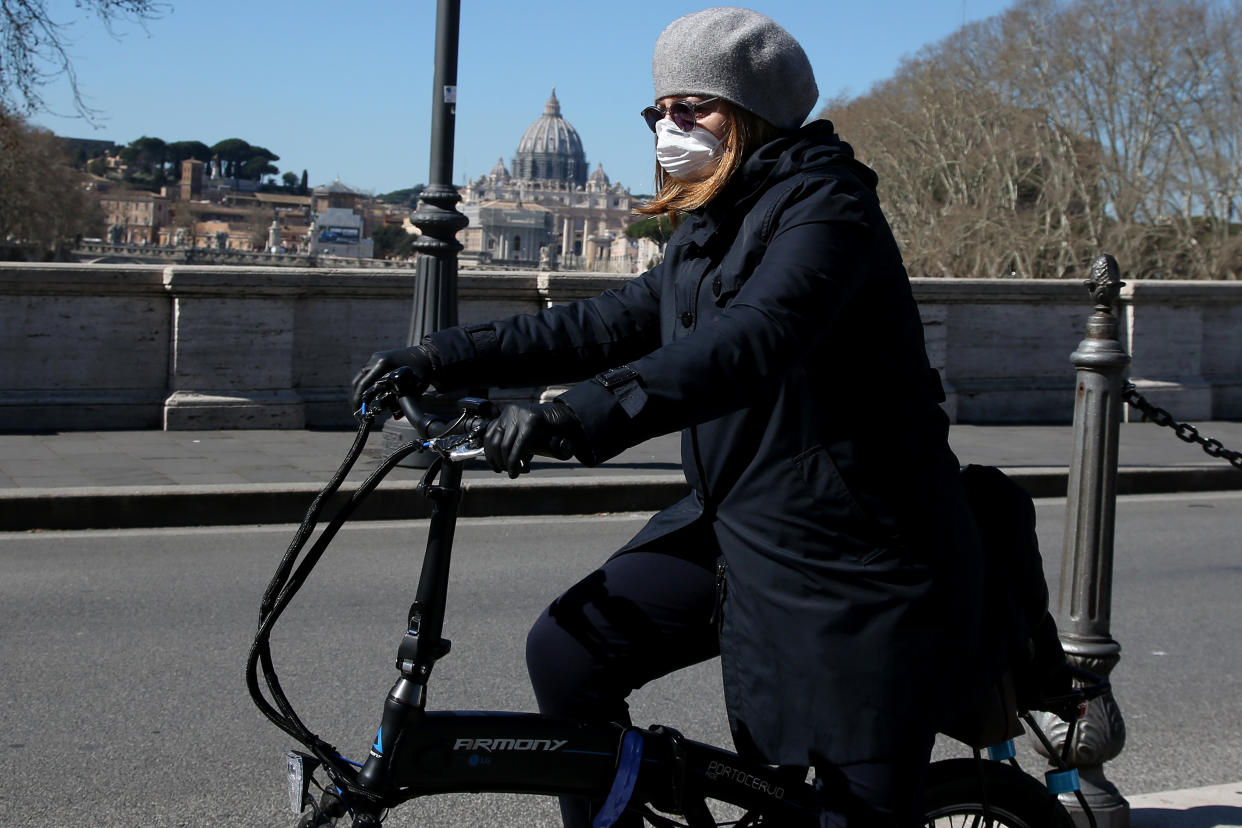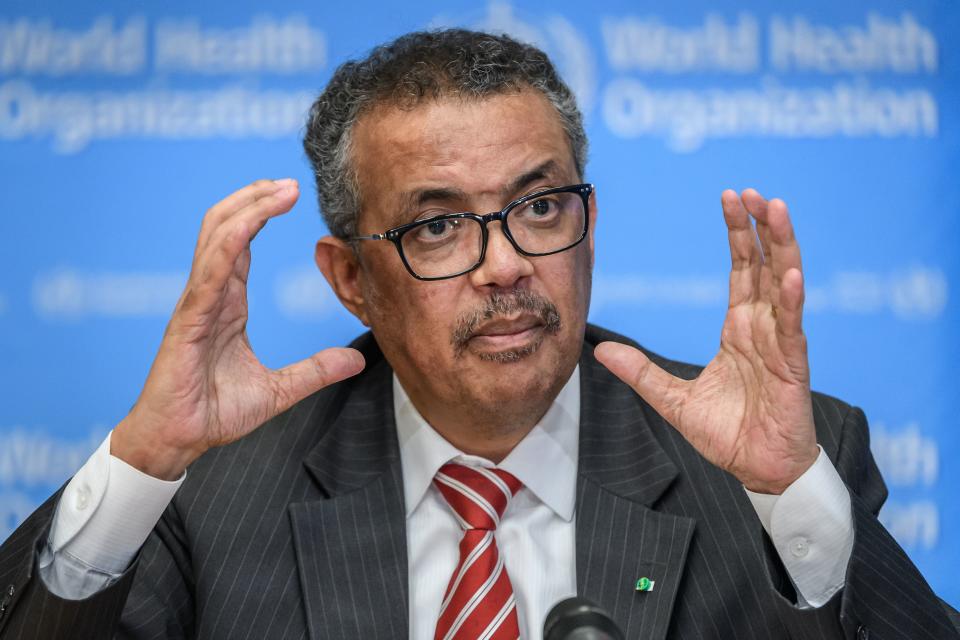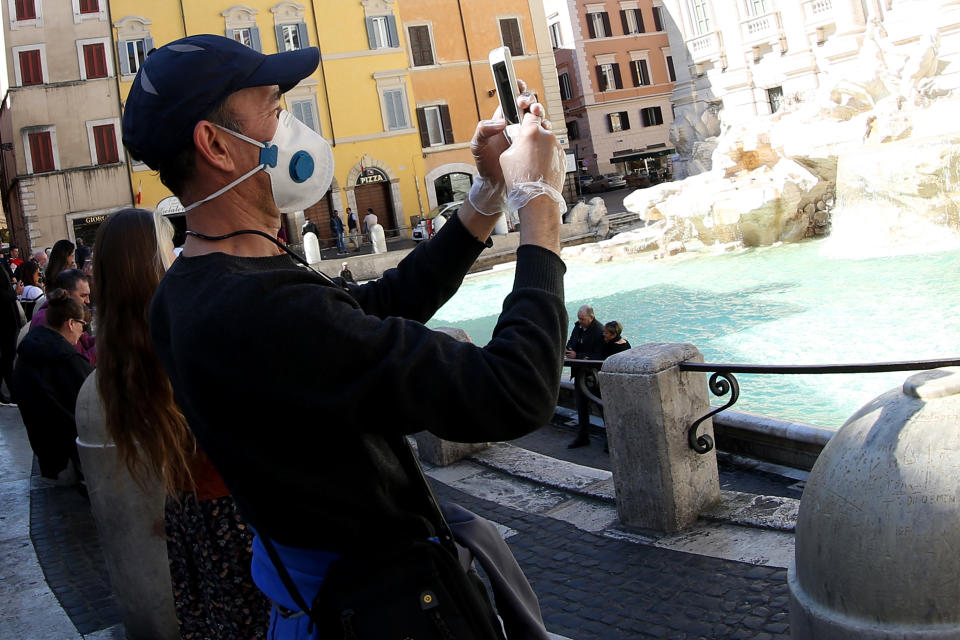Coronavirus outbreak called a 'pandemic' by the World Health Organization

The World Health Organization (WHO) has called the coronavirus outbreak a “pandemic”.
There are more than 118,000 confirmed cases across 114 countries, and the number of patients outside China has increased 13-fold in the past two weeks.
Read more: Coronavirus questions answered: symptoms and how it compares with flu
With “thousands fighting for their lives in hospital” and the number of deaths expected to climb even higher in the next few days, the WHO has made the assessment that the coronavirus “can be characterised as a pandemic”.
One expert said the use of the word “pandemic” highlights how seriously the outbreak should be taken but does not alter anything practically when it comes to combating the virus.

“Pandemic is not a word to use lightly or carelessly,” said the WHO’s director-general Dr Tedros Adhanom Ghebreyesus.
“It is a word that, if misused, can cause unreasonable fear, or unjustified acceptance that the fight is over, leading to unnecessary suffering and death.
See latest coronavirus news and updates
“Describing the situation as a pandemic does not change WHO’s assessment of the threat posed by this coronavirus.
“It doesn’t change what WHO is doing, and it doesn’t change what countries should do.”
On 24 February, Dr Adhanom Ghebreyesus said the outbreak could not yet be considered a pandemic, claiming the word “does not fit the facts”.
The WHO does not officially declare outbreaks pandemics anymore, but may use the word “colloquially”.
According to the WHO’s old definition, a pandemic is the “worldwide spread of a new disease”.
The circulating virus, named Covid-19, is one of seven strains of the coronavirus class that are known to infect humans.
Four of the strains cause the common cold, with the fifth being severe acute respiratory syndrome (Sars) and the sixth Middle East respiratory syndrome (Mers).
“We have never before seen a pandemic sparked by a coronavirus,” said Dr Adhanom Ghebreyesus.
“And we have never before seen a pandemic that can be controlled at the same time.
“WHO has been in full response mode since we were notified of the first cases.”
Read more: The risk factors of those most likely to die from the coronavirus
Sars killed 774 people during its 2002/3 outbreak, with no reported cases since.
In 2012, 858 people died from Mers, with a handful of incidences occurring in the Middle East every year.
More than 4,300 people are known to have died from Covid-19 since it was identified at the end of 2019.
Over 66,200 patients have also “recovered”.
Covid-19 is thought to have emerged at a seafood and live animal market in the Chinese city of Wuhan, capital of Hubei province.
The WHO declared it a “global emergency” on 30 January when cases started to arise in people who had not been to China, catching it from recently returned travellers.
“We have called every day for countries to take urgent and aggressive action,” said Dr Adhanom Ghebreyesus.
“We have rung the alarm bell loud and clear.”
John Hopkins University data suggests more than 121,500 cases have been confirmed worldwide since the outbreak began, of which over 80,900 are in mainland China.
More than 25,000 people have been tested in the UK, with 460 coming back positive.
Eight Britons have died of the infection, of whom six became unwell in the UK.
Dr Adhanom Ghebreyesus said that looking at the number of cases and affected countries “does not tell the full story”.
“More than 90% of cases are in just four countries, and two of those [China and South Korea] have significantly declining epidemics,” he said.
Incidences in China have been plateauing since the end of February.
Since the outbreak began, 80,700 cases were confirmed in China on 9 March, rising slightly to 80,800 the following day and 81,000 on 11 March.
South Korea was once the second worst affected country but has been “overtaken” by Italy and Iran, with more than 10,000 and 9,000 cases respectively.
“Eighty-one countries have not reported any Covid-19 cases and 57 countries have reported 10 cases or less,” said Dr Adhanom Ghebreyesus.
“We cannot say this loudly enough, or clearly enough, or often enough: all countries can still change the course of this pandemic.”
Spotting and isolating patients early prevents “cases becoming clusters”.
“Several countries have demonstrated that this virus can be suppressed and controlled,” said Dr Adhanom Ghebreyesus.
“Some countries are struggling with a lack of capacity.
“Some countries are struggling with a lack of resources.
“Some countries are struggling with a lack of resolve.”
Read more: Coronavirus generally 'causes symptoms within five days'
Referring to this comment, Dr Michael Head – from the University of Southampton – said: “This is clearly a direct indication that [the WHO] considers many countries have been slow to scale up their responses.
“The characterisation of the situation as a pandemic may mean that we see countries feel incentivised to implement further larger interventions, such as banning of public gatherings, sooner than would they were otherwise planning to.”
Dr Adhanom Ghebreyesus praised the “measures” taken in Italy, Iran and South Korea, which have imposed strict quarantines.
“We know that these measures are taking a heavy toll on societies and economies”, he said.
The WHO’s executive director Dr Michael Ryan stressed situations similar to those in Iran and Italy could arise elsewhere.
“They’re suffering, but I guarantee you other countries will be in that situation very soon,” he said.
Dr Adhanom Ghebreyesus called on countries to continue identifying patients, communicating the risks and “looking out for each other”.
Rather than placing to much emphasis on the word “pandemic”, he stressed the importance of “prevention, preparedness, public health, political leadership and most of all, people”.
“We’re in this together, to do the right things with calm and protect the citizens of the world,” said Dr Adhanom Ghebreyesus.
“It’s doable.”
Speaking of the WHO’s declaration, Dr Nathalie MacDermott from King’s College London said: “This decision will likely have been made on the basis of the majority of the world’s continents now seeing significant and ongoing person-to-person spread of [Covid-19].
“The change of term does not alter anything practically as the world has been advised for the last few weeks to prepare for a potential pandemic, which has hopefully been taken seriously by all countries.
“The use of this term however highlights the importance of countries throughout the world working cooperatively and openly with one another, and coming together as a united front in our efforts to bring this situation under control.”
Professor Mark Woolhouse, from the University of Edinburgh, stressed the importance of “sustainable” action.
“It is now clear that Covid-19 is going to be with us for a considerable length of time and the actions that we take must be actions that we can live with for a prolonged period,” he said.

What is the new coronavirus Covid-19?
Most of those who initially caught Covid-19 worked at, or visited, the “wet market” in Wuhan.
Officials confirmed early on in the outbreak that the virus spreads face-to-face via droplets that have been sneezed or coughed out by a patient.
There is also evidence it may be transmitted in faeces and urine.
Early research suggests four out of five cases are mild, with the immune system naturally fighting off the virus.
Read more: Questions doctors are being asked about the coronavirus
In severe cases, pneumonia can come about when the infection causes the alveoli (air sacs) in the lungs to become inflamed and filled with fluid or pus.
The lungs then struggle to draw in air, resulting in reduced oxygen in the bloodstream.
Most of those becoming ill are elderly or otherwise unwell, like those with diabetes or asthma.
Covid-19 has no “set” treatment. Patients requiring hospitalisation are given “supportive care”, like ventilation, while their immune system gets to work.
To prevent infection, officials recommend regular hand-washing and “social distancing”.



